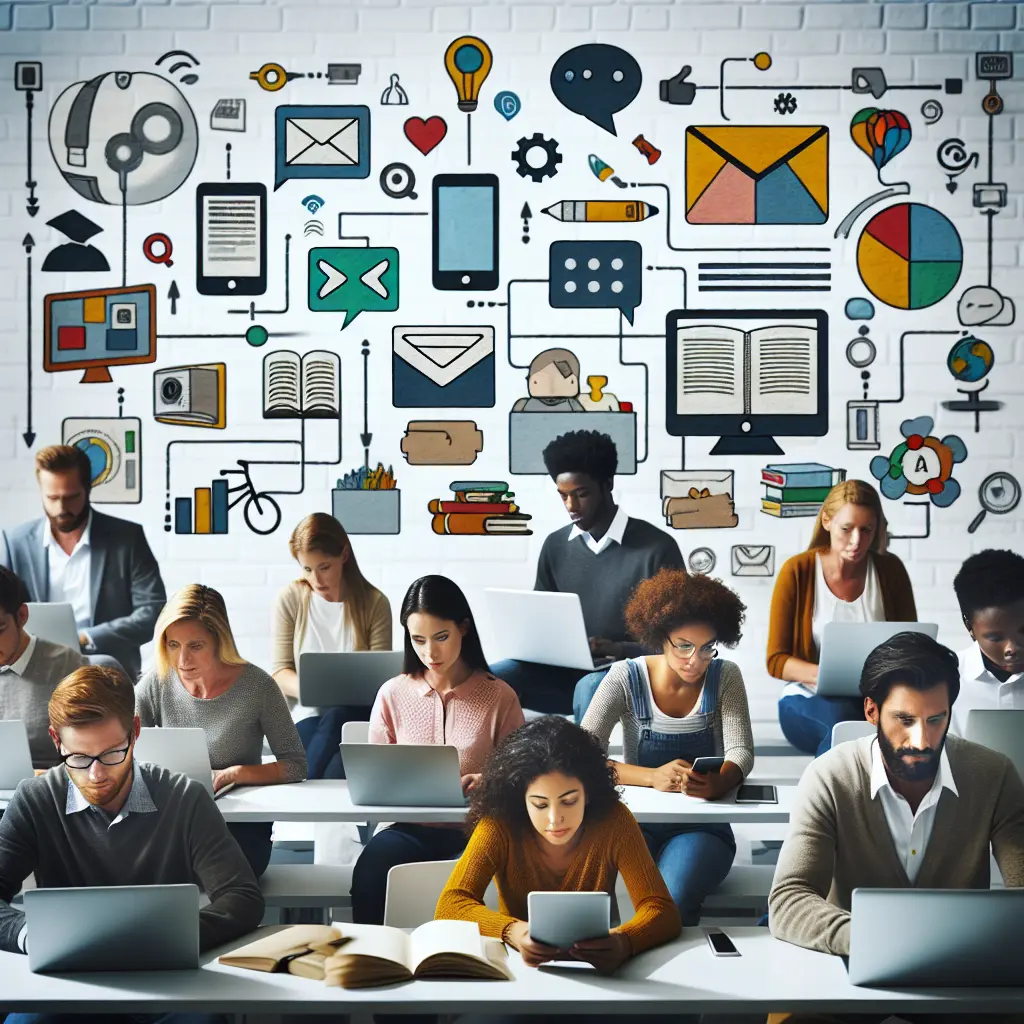
In the vast and evolving landscape of education, social media has emerged as a pivotal player, reshaping how knowledge is disseminated and absorbed. This digital revolution, driven by platforms that were once solely venues for social interaction, now plays a critical role in modern educational frameworks. As we delve into the nuances of social media education, it's crucial to explore its benefits and challenges, while also considering recent developments that highlight the complex interplay between technology and learning.
The Transformative Impact of Social Media on Learning
Social media has undeniably transformed the traditional educational environment. Platforms that support user-generated content and real-time interaction have become powerful modern education tools, enhancing both teaching and learning experiences. The impact of social media on learning extends beyond simple knowledge acquisition; it fosters collaboration, creativity, and critical thinking among students. By integrating social media in classrooms, educators can engage students in compelling, interactive ways that traditional methods could seldom achieve.
Digital education platforms like Edmodo or Schoology harness these social dynamics to enrich communication and streamline the sharing of resources. These platforms not only facilitate educational collaboration but also ensure that learning can persist outside the physical classroom, a necessity in today's fast-paced world.
Incorporating Social Media Teaching Strategies
The use of social media teaching strategies has proven particularly effective in boosting online learning engagement. Teachers are increasingly leveraging platforms like Twitter and Facebook to create groups or hashtags where students can discuss assignments, share insights, and even peer-review each other’s work. This approach not only makes learning more relatable and accessible but also encourages students to become active participants in their education journey.
However, the integration of social media into educational settings is not without its challenges. The recent news about the TikTok lawsuit by the US Justice Department over alleged violations of kids’ privacy underscores the potential risks associated with using these platforms. Educators must navigate these waters carefully, ensuring they uphold privacy standards and protect their students from potential harms.
Challenges of Social Media in Education
Despite the benefits of social media in education, there are significant challenges that need addressing. Privacy concerns, the potential for misinformation, and the distraction factor are among the top issues. For instance, the controversy surrounding TikTok’s privacy policies highlights the need for stringent safeguards to protect young users from exploitation.
Moreover, the case of a diabetic patient who turned to social media to find insulin during a supply shortage illustrates how these platforms can become critical lifelines. While this shows the positive power of community support, it also raises questions about reliance on unofficial channels for essential needs.
Recent News Influencing Social Media Education
The landscape of social media is continually influenced by broader societal events. Recent incidents like the alleged role of social media in escalating the riot in Southport or the major leak of ‘House of the Dragon’s season finale on social media provide lessons on the platform's power and reach. These events offer teachable moments for discussing digital citizenship and the ethical use of technology—crucial elements of educational technology.
Additionally, news such as Spotify’s attempt to incorporate more social media elements into its platform or Beastie Boys’ lawsuit over unauthorized use of their music in social media ads by Chili’s owner reflect the ongoing negotiations over intellectual property and user engagement in digital spaces. These developments should prompt educators to discuss with students the legal and ethical dimensions of digital content creation and consumption.
Educational Technology: Looking Ahead
Looking ahead, the role of educational technology will only grow. The ongoing debates among tech billionaires about industry ethics, showcased by recent public disputes reported in the news, underline the influence these figures have on how technologies are shaped and used. As educators, understanding these dynamics helps inform how we adopt and adapt new technologies for educational purposes.
Moreover, incidents like Elon Musk's confrontational stance with advertisers on social media platform X (formerly Twitter) highlight the volatile nature of social media businesses. This volatility impacts not just business decisions but also how platforms are perceived by users—including students—and their suitability for educational use.
Conclusion
The integration of social media into education represents a dynamic intersection of technology, pedagogy, and learner engagement. While it offers numerous benefits such as enhanced communication and innovative teaching strategies, it also presents challenges like privacy concerns and potential distractions.
As we move forward, it’s imperative for educators to balance these aspects thoughtfully. By fostering an environment that emphasizes critical thinking and ethical digital citizenship, we can harness the positive power of social media while mitigating its risks.
Thank you for joining me in this exploration of social media’s role in modern education. As we continue to navigate these digital waters, let us remain committed to enriching our classrooms with technologies that not only inform but also inspire.
Ethan Montgomery